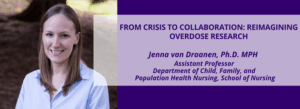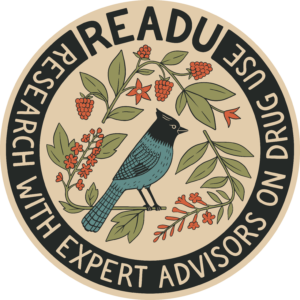
October is National Overdose Awareness Month—a time to honor lives lost, support those affected, and reflect on how research can better serve communities facing the overdose crisis. While recent CDC data shows a nearly 24% drop in overdose deaths nationwide, overdose is still the leading cause of death for Americans ages 18 to 44. Opioids are involved in more than 76% of these deaths. These numbers show both progress and the urgent need to keep going.
Overdose research has changed over time. It used to focus mostly on individual behaviors, but now it looks at bigger issues like housing instability, racism, criminalization, and lack of access to healthcare. Researchers are starting to understand that overdose isn’t just a medical problem—it’s also a social one. That shift has opened the door for community-based research that centers lived experience and focuses on fairness and equity.
Another exciting direction is using harm reduction in research design. Instead of treating harm reduction as a separate tool, we can build its values—like dignity, compassion, non-judgment, and empowerment—into how we ask questions, collect data, and share results. This approach makes research more relevant and helps build trust with communities that have often been left out. By respecting the experiences of people who use drugs and focusing on their safety and choices, harm reduction-informed research can better reflect real life.

At the University of Washington, our team created READU (Research with Expert Advisors on Drug Use), a group made up of researchers, clinicians, and people with lived and living experience of substance use. Our model is built on shared decision-making, two-way learning, and real engagement. We aim to make research more useful and build trust and growth among team members.
One of our biggest projects is the ORCID study—Overdose Response Centering Inequity and Diversity. This study looks at changes in emergency medical services (EMS) in King County, Washington. We’re following up to 500 people who survived a non-fatal overdose and doing interviews to learn how EMS programs—like leave-behind naloxone, trauma-informed care, and warm hand-offs to treatment—affect outcomes. We’re also linking data across EMS, public health, and legal systems to build tools for long-term equity tracking. The study is co-led by community researchers from READU, making sure lived experience guides every step.
Looking ahead, overdose research must continue to challenge power imbalances. That means funding community-led studies, supporting researchers with lived experience, and pushing for policy changes based on evidence. It also means being honest about the limits of academic institutions and working to make them more accountable.
As we mark Overdose Awareness Month, we feel hopeful. The field is shifting toward more inclusive, responsive, and justice-focused research. There’s still a lot to do, but together, we can move from documenting crisis to building real solutions.